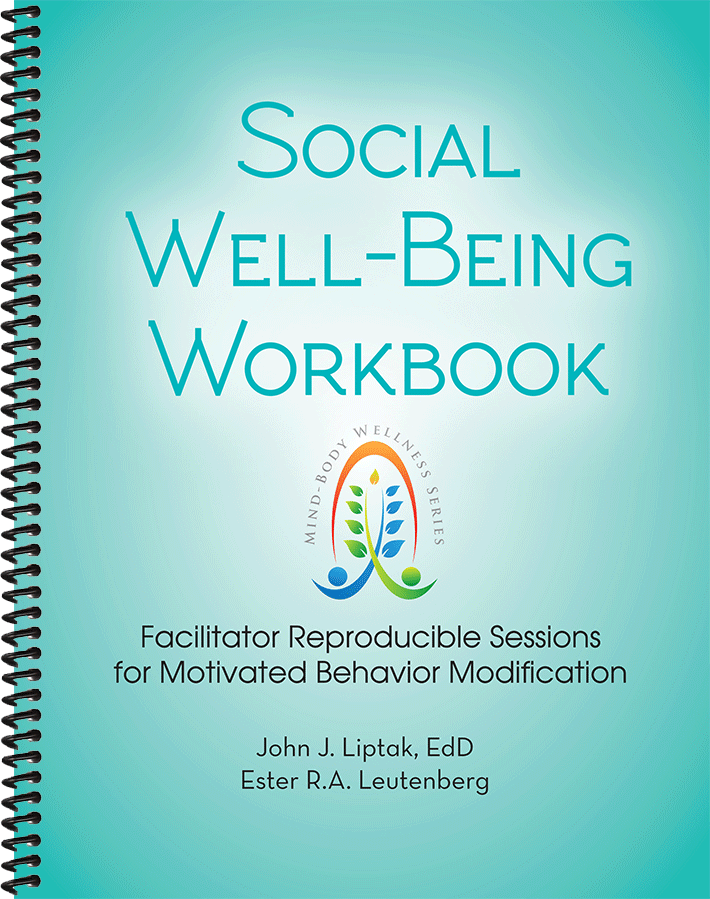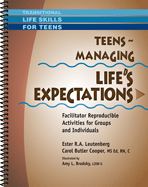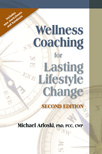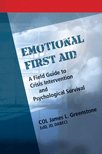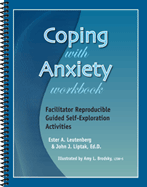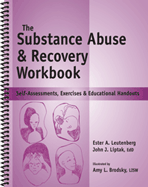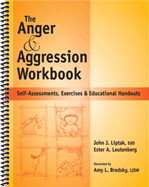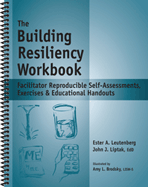Social Well-Being
Facilitator Reproducible Sessions for Motivated Behavior Modification
The Social Well-Being Workbook aims to help your clients strengthen existing social well-being traits and develop new attitudes to improve their social well-being. With your facilitation, your participants will complete the assessments, activities, and exercises in this workbook and develop and enhance a full spectrum of social skills.
Social health has become increasingly more important within the overall concept of human health and wellness. Socially healthy people can relate well to others, genuinely care for all people regardless of their cultural characteristics, and willingly reach out to others. They are contributing members of their community and are a part of the social networks of others. Inability to form and maintain relationships can harm a person’s health and well-being. Positive and effective social interaction, an essential component of society, is vital for individuals to master, especially when managing stress or overcoming illness.
The Social Well-Being Workbook will help your clients understand how social well-being can build personal and professional success, reduce stress and enhance overall life satisfaction.
The seven sections of the workbook include:
Section 1 – Relationships
This section will help participants explore and understand their current relationships with people in the community, partners, family members, co-workers, and friends. Thought-provoking, user-friendly activity handouts will help them to improve relationships in all areas of their life and career.
Section 2 – Diversity
This section will help participants examine how they accept, respect, and value diversity in themselves and other people. Thought-provoking, user-friendly activity handouts will allow them to explore how they value diversity in professional and personal relationships.
Section 3 –Intimacy
This section will help participants gauge how they demonstrate physical, intellectual, and emotional intimacy in their relationships. Thought-provoking, user-friendly activity handouts will enable participants to develop intimacy skills to deepen existing and future relationships.
Section 4 – Interactions
This section will help participants explore their interactions with other people. Thought-provoking, user-friendly activity handouts will assist in accentuating styles of interacting to develop stronger relationships.
Section 5 – Media
This section will help participants explore how they experience virtual (online, telephone) and in-person relationships. Thought-provoking, user-friendly activity handouts will promote a healthy balance to meet all relationship needs.
Section 6 – Caring
This section will help participants explore how they care about others and the ways they show this caring. Thought-provoking, user-friendly activity handouts promote altruism and caring about other people and societal needs.
Section 7 – Support
This section helps participants explore their support systems. Thought-provoking, user-friendly activity handouts are provided to develop and use a healthy social support system with others.
This workbook is also available in PDF eBook format, making it simple to store on your computer or mobile device and to access with a PDF viewer. The PDF format allows you to easily print copies of the activities and worksheets during therapy and counseling sessions.
All worksheets, assessments, and activities are reproducible for your convenience.
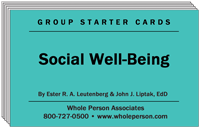 Social Well-Being Card Deck
Social Well-Being Card Deck
Need a creative way to start your session? Use the Social Well-Being Card Deck. The open-ended questions will break the ice and stimulate conversation. Use them alone or in conjunction with the corresponding page in the book.
Sample Questions:
What current relationship is not working in your life?
How do healthy relationships not only contribute to social well-being, but to well-being in general? Provide an example.
Tim Gunn said, “Life is not a solo act. It’s a huge collaboration, and we need to assemble around us the people who care about us and support us in times of strife.” What do you think he meant?

